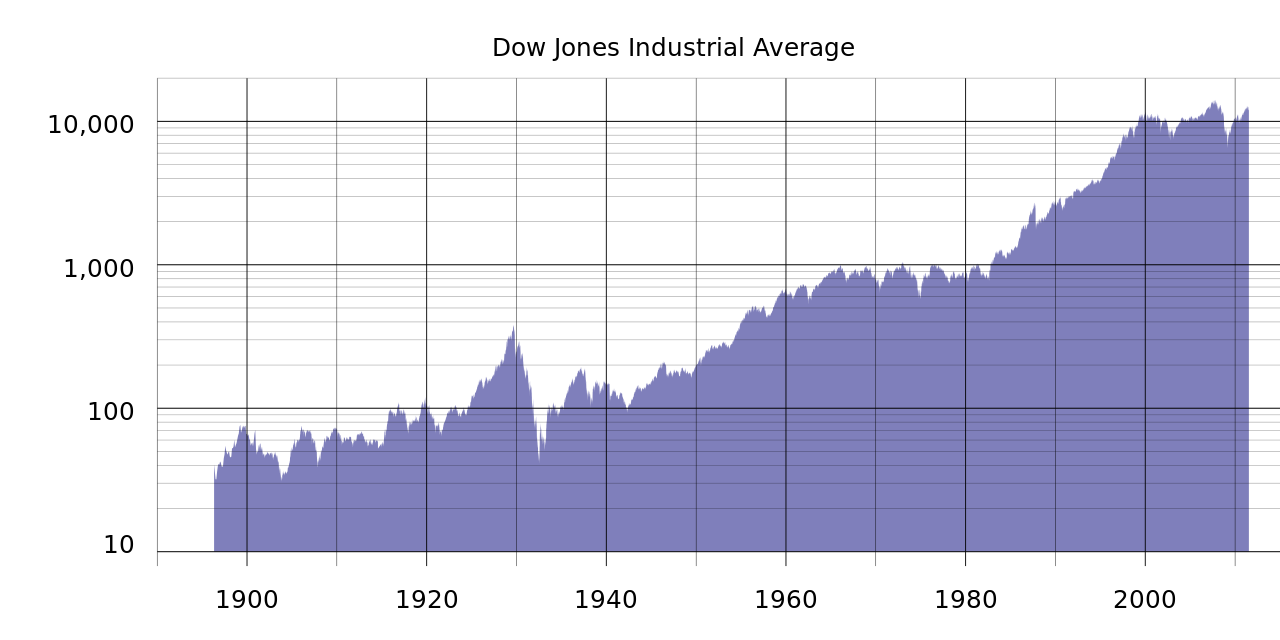Djia Index: Understanding Its Impact On The Financial Market
The Djia Index, also known as the Dow Jones Industrial Average (DJIA), is one of the most recognized and important stock market indices in the world. It serves as a barometer for the overall health of the U.S. economy and reflects the performance of 30 large publicly-owned companies trading on the New York Stock Exchange (NYSE) and the NASDAQ. Understanding the Djia Index is essential for investors, economists, and anyone interested in the financial markets.
This article will delve into the Djia Index, explaining its composition, historical performance, and significance in the financial market. We will explore how the index is calculated, its role in investment strategies, and the factors that influence its movements. By the end, you will have a comprehensive understanding of the Djia Index and its impact on your financial decisions.
With the rapid changes in the economy, keeping track of the Djia Index can provide valuable insights into market trends and investor sentiment. Whether you are a seasoned investor or a novice looking to enter the stock market, understanding the Djia Index is crucial for making informed decisions.
Table of Contents
- What is the Djia Index?
- History of the Djia Index
- Components of the Djia Index
- Calculation of the Djia Index
- Impact of the Djia Index on the Market
- Investment Strategies with the Djia Index
- Factors Affecting the Djia Index
- Future of the Djia Index
What is the Djia Index?
The Djia Index is a stock market index that tracks the performance of 30 large, publicly traded companies in the United States. It is one of the oldest and most widely cited stock indices in the world, often used as a benchmark for the overall performance of the U.S. stock market. The index is price-weighted, meaning that companies with higher stock prices have a greater influence on the index's movement.
History of the Djia Index
The Djia Index was first introduced by Charles Dow in 1896, originally consisting of 12 companies. Over the years, it has evolved to include 30 companies, representing a broad spectrum of industries. The index has experienced significant fluctuations throughout its history, reflecting economic booms and busts, such as the Great Depression, the dot-com bubble, and the 2008 financial crisis.
Key Milestones in the History of Djia Index
- 1896: Introduction of the Dow Jones Average with 12 companies.
- 1928: Expansion to 30 companies.
- 1985: The index reached 1,000 points for the first time.
- 1999: The index surpassed 10,000 points.
- 2021: The index crossed the 30,000 point mark.
Components of the Djia Index
The Djia Index is composed of 30 large-cap companies, which are leaders in their respective industries. Some of the most notable companies in the index include:
- Apple Inc.
- Microsoft Corp.
- Johnson & Johnson
- The Coca-Cola Company
- Boeing Co.
Calculation of the Djia Index
The Djia Index is calculated using a price-weighted formula, which means that the stock prices of the companies are summed and then divided by a divisor. This divisor is adjusted for stock splits and other corporate actions to ensure that the index remains consistent over time.
Understanding the Price-Weighted Calculation
Unlike market capitalization-weighted indices, where larger companies have a greater influence based on their total market value, the Djia Index gives more weight to companies with higher stock prices. This means that a small change in the stock price of a high-priced stock can significantly impact the index.
Impact of the Djia Index on the Market
The Djia Index is often seen as a leading indicator of the overall health of the U.S. economy. Changes in the index can influence investor sentiment and market trends. A rising Djia Index typically signals investor confidence, while a declining index may indicate economic uncertainty.
Investment Strategies with the Djia Index
Investors can use the Djia Index as a tool for developing investment strategies. Here are some common strategies:
- Index Funds: Investing in index funds that track the Djia Index allows investors to achieve broad market exposure.
- Options Trading: Traders can use options on the Djia Index to hedge their portfolios or speculate on future movements.
- Diversification: Investors can diversify their portfolios by investing in the companies that comprise the Djia Index.
Factors Affecting the Djia Index
Several factors can influence the movements of the Djia Index, including:
- Economic indicators (e.g., GDP growth, unemployment rates)
- Monetary policy decisions by the Federal Reserve
- Corporate earnings reports
- Geopolitical events
Future of the Djia Index
As the financial landscape continues to evolve, the Djia Index will likely adapt to reflect changes in the economy. Investors and analysts will need to stay informed about emerging trends and factors that may influence the index's performance in the future.
Conclusion
In summary, the Djia Index serves as a critical indicator of the health of the financial market and the U.S. economy. Understanding its composition, calculation methods, and the factors influencing its movements can help investors make informed decisions. Whether you are looking to invest or simply want to stay informed about market trends, keeping an eye on the Djia Index is essential.
We encourage you to leave your thoughts in the comments below, share this article with others who may find it helpful, and explore more articles on our site to deepen your understanding of the financial markets.
Penutup
Thank you for reading our comprehensive guide on the Djia Index. We hope you found it informative and engaging. We invite you to visit again for more insights on financial topics and investment strategies that can help you navigate the complex world of investing.
Exploring Yahoo Images: A Comprehensive Guide
Exploring Ennis, Alaska: A Hidden Gem In The Wilderness
Robert De Niro Young: A Journey Through His Early Years And Rise To Stardom


